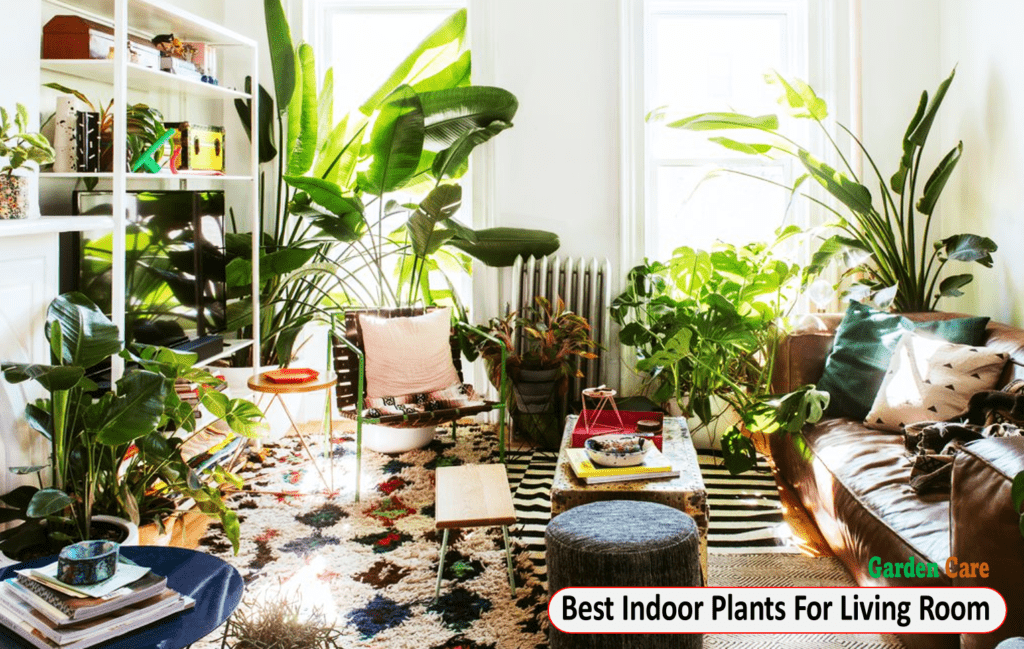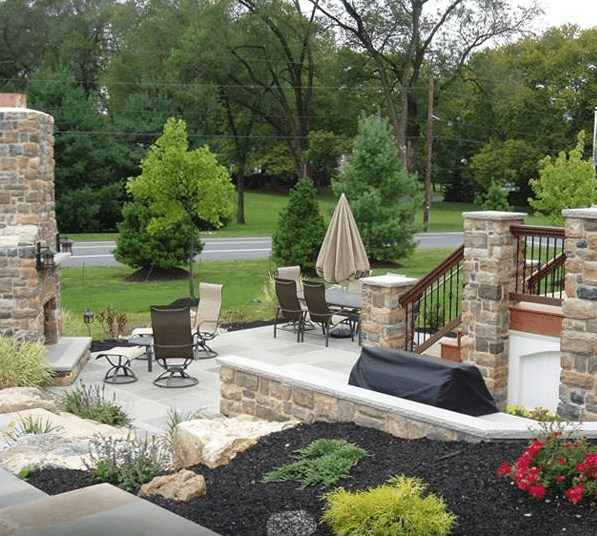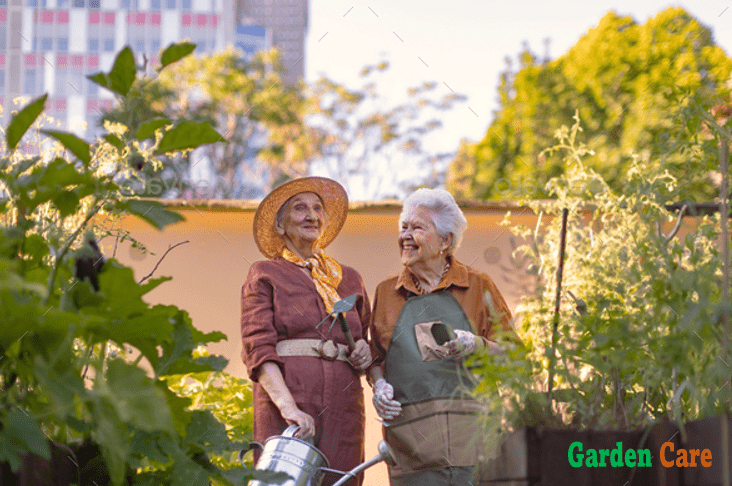Best Fruits And Vegetables to Grow in a Small Garden – For a small garden, the best fruits and vegetables to grow are tomatoes, peppers, lettuce, spinach, strawberries, and herbs. These plants don’t require much space and thrive in limited areas.
When planning a small garden, it’s important to choose plants that are compact and low-maintenance, yet still produce a bountiful harvest. By including a variety of fruits and vegetables, you can create a diverse and sustainable garden that provides fresh, nutritious produce throughout the growing season.
With the right selection of plants and proper care, even a small garden can yield a rich and flavorful bounty. Now, let’s explore the top fruits and vegetables that are perfect for small garden spaces.
[ez-toc]

Benefits Of Growing Your Own Fruits And Vegetables
Growing your own fruits and vegetables in a small garden can have numerous benefits, making it a satisfying and rewarding endeavor. Not only does it promote a healthier lifestyle by encouraging the consumption of fresh, organic produce, but it also provides cost savings and contributes to a more eco-friendly environment. Let’s take a closer look at the benefits of cultivating your own fruits and vegetables.
Health Benefits
Cultivating your own fruits and vegetables ensures access to a fresh and abundant supply of nutritious produce. By consuming homegrown fruits and vegetables, you can avoid the intake of harmful chemicals often found in store-bought produce. These homegrown items are also packed with higher levels of essential vitamins, minerals, and antioxidants, contributing to a stronger immune system and improved overall health.
Cost Savings
By growing your own fruits and vegetables, you can save a significant amount of money on grocery bills. The initial investment in seeds, tools, and soil is minimal compared to the long-term savings achieved by harvesting your own produce. Additionally, the surplus fruits and vegetables can be preserved through canning or freezing, ensuring a supply of fresh produce during off-seasons.
Eco-friendly
Cultivating your own fruits and vegetables promotes sustainable living and reduces the carbon footprint associated with commercial agriculture. You can minimize the use of plastic packaging and transportation emissions by consuming locally grown produce. Furthermore, by utilizing organic gardening practices, such as composting and natural pest control, you can contribute to the preservation of the environment.
Factors To Consider When Choosing Fruits And Vegetables For A Small Garden
Factors to consider when selecting fruits and vegetables for a small garden include the available space, sunlight requirements, growing season, and personal preferences. Optimal choices for a small garden include compact varieties of tomatoes, lettuce, peppers, herbs, and berries.
Factors to Consider when Choosing Fruits and Vegetables for a Small Garden When it comes to selecting the best fruits and vegetables to grow in a small garden, several factors need to be taken into consideration. By understanding the space requirements, climate suitability, and maintenance needs of different plants, you can make informed decisions that will lead to a successful and bountiful harvest.
Space Requirements
In a small garden, it’s crucial to prioritize plants that can thrive in confined spaces. Consider growing compact varieties of fruits and vegetables that are well-suited for containers or raised beds. Utilizing vertical space, such as trellises or hanging planters, can also maximize the available area for cultivation.
Climate Suitability
Before selecting which fruits and vegetables to grow, it’s essential to assess the climate of your location. Choose plants that are well-adapted to the local weather conditions, whether it’s a short growing season, hot summers, or cold winters. By opting for varieties that are suitable for your climate, you can increase the likelihood of a successful harvest.
Maintenance Needs
When planning a small garden, it’s important to consider the maintenance requirements of different fruits and vegetables. Opt for low-maintenance crops that are relatively easy to care for and don’t require extensive upkeep. Additionally, prioritize plants that are resistant to common pests and diseases to minimize the need for constant intervention. By carefully considering these factors when selecting fruits and vegetables for your small garden, you can make the most of the available space and resources, ultimately leading to a thriving and productive growing season.
Top Fruits To Grow In A Small Garden
Discover the top fruits perfect for small gardens. With limited space, consider growing strawberries, blueberries, and dwarf apple trees. These compact options are ideal for maximizing your garden’s potential and enjoying fresh, homegrown produce.
When it comes to growing fruits in a small garden, you might think that your options are limited. However, there are several delicious and nutritious fruits that thrive in small spaces. Whether you have a balcony, a tiny backyard, or just a small patch of soil, you can still enjoy the taste of homegrown fruit.
Strawberries
Strawberries are a popular choice for small gardens because they don’t require much space and can be grown in containers or hanging baskets. These juicy, red berries are packed with vitamin C and antioxidants. Plus, there’s nothing quite like the taste of a freshly picked strawberry.
If you decide to grow strawberries in your small garden, make sure to choose a variety suited for containers, such as ‘Albion’ or ‘Seascape’. Plant them in well-draining soil and provide plenty of sunlight. Don’t forget to water regularly and protect the plants from pests like slugs and birds.
Blueberries
Blueberries are another great fruit for small gardens. These small, round berries are known for their antioxidant properties and delicious taste. You can grow blueberries in containers or in the ground, but keep in mind that they prefer acidic soil.
Choose a dwarf variety, such as ‘Top Hat’ or ‘Patriot’, which are ideal for small spaces. Blueberries require full sun, so make sure to plant them in a sunny spot. They also appreciate regular watering and mulching to retain moisture. With a little care, you’ll be rewarded with a bountiful harvest of these tasty berries.
Raspberries
Raspberries are a versatile fruit that can be grown in small gardens with the right care. These sweet, tangy berries are excellent sources of dietary fiber and vitamin C. They can be trained to grow vertically, making them a perfect choice for limited spaces.
When choosing raspberry varieties for your small garden, look for compact or dwarf varieties like ‘Heritage’ or ‘Raspberry Shortcake’. Plant them in well-draining soil with plenty of organic matter. Raspberries thrive in full sun but can tolerate some shade. Regular pruning will help maintain the plants’ shape and encourage more fruit production.
In conclusion, growing fruits in a small garden is not only possible but also highly rewarding. Whether you choose strawberries, blueberries, or raspberries, these fruits will provide you with fresh, flavorsome treats straight from your own backyard. So, roll up your sleeves, pick the fruit that suits your space and taste buds, and start gardening!

Top Vegetables To Grow In A Small Garden
Looking to start a small garden? Consider growing tomatoes, peppers, and lettuce. These veggies are compact and suitable for small spaces, making them great options for urban or limited garden areas. They will thrive in containers or raised beds, providing a bountiful harvest for your kitchen.
When it comes to growing your own vegetables, having limited space should not hold you back. With the right selection, you can enjoy a bountiful harvest even in a small garden. Here are some top vegetables that are perfect for small gardens:
Tomatoes
Tomatoes are one of the most popular vegetables to grow in a small garden. They are versatile, delicious, and relatively easy to grow. Whether you have a backyard garden, a balcony, or even just a sunny spot inside your home, tomatoes can thrive with proper care. The compact varieties like ‘Patio’ or ‘Tiny Tim’ are ideal for small spaces. With their vibrant colors and juicy flavors, homegrown tomatoes will be a delightful addition to your meals.
Carrots
Carrots are another great vegetable for small gardens. These root vegetables can be grown in containers or directly in the ground. Their deep orange color and sweet crunch make them a favorite among both kids and adults. For small gardens, consider growing smaller varieties like ‘Little Finger’ or ‘Parisian Market’. These mini carrots are not only space-saving but also mature faster, allowing you to enjoy a harvest in a shorter time frame.
Lettuce
Lettuce is a versatile vegetable that can be grown in small spaces all year round. It is a fast-growing, low-maintenance crop that can be harvested at various stages of growth. If you have limited space, opt for loose-leaf varieties like ‘Red Salad Bowl’ or ‘Buttercrunch’. These varieties take up less space and continue to produce leaves as they are harvested. Plus, their vibrant colors and crisp texture will make your salads visually appealing and delicious.
Summary
Growing your own vegetables in a small garden is not only rewarding but also a great way to enjoy fresh and healthy produce. Tomatoes, carrots, and lettuce are some top vegetables that thrive in small spaces. With their compact varieties and low-maintenance nature, you can easily incorporate these veggies into your small garden and enjoy the taste of homegrown goodness.
Tips For Maximizing Yield In A Small Garden
If you have a small garden, there are several techniques you can employ to maximize your yield and make the most of the limited space. By utilizing container gardening, vertical gardening, and succession planting, you can grow a wide variety of fruits and vegetables even in a small area. These methods will not only help you make the most of your space but also allow for better organization and easier maintenance of your garden.
Container Gardening
Container gardening is a great option for small gardens as it allows you to grow plants in pots or containers, making efficient use of available space. By opting for containers of various sizes and shapes, you can cultivate different fruits and vegetables that suit your preferences.
- Choose containers that have good drainage to prevent waterlogging.
- Use a high-quality potting mix, enriched with organic matter and nutrients.
- Place your containers strategically to take advantage of sunlight.
- Consider using hanging baskets or window boxes to maximize vertical space.
Vertical Gardening
Vertical gardening is an excellent technique for small gardens where horizontal space is limited. By planting upwards instead of outwards, you can grow more plants and increase your yield significantly.
- Install trellises, stakes, or fences to support climbing plants.
- Grow vining vegetables such as cucumbers, beans, or tomatoes.
- Utilize wall-mounted planters or vertical hydroponic systems for herbs and leafy greens.
- Consider using tiered plant stands or shelving units to create vertical layers.
Succession Planting
Succession planting involves sowing seeds or transplanting seedlings at regular intervals to ensure a continuous harvest throughout the growing season. This technique maximizes productivity by making efficient use of the available space in your small garden.
- Choose crops with shorter growing seasons and plant them in succession.
- Start with cool-season crops in early spring and transition to warm-season crops as the weather warms up.
- Plan your plantings based on the recommended spacing and maturity dates.
- As you harvest one crop, immediately replace it with a new planting to keep your garden productive.
By incorporating container gardening, vertical gardening, and succession planting techniques into your small garden, you can optimize the space and enjoy a plentiful harvest throughout the growing season. These methods not only help you make the most of your limited area but also ensure your garden remains organized and easy to manage.
Frequently Asked Questions On Best Fruits And Vegetables To Grow In A Small Garden
What Are The Best Vegetables For A Small Garden?
The best vegetables for a small garden include lettuce, radishes, carrots, tomatoes, and peppers. These vegetables are compact, easy to grow, and can thrive in limited space. They provide fresh and healthy produce right in your backyard.
What Is The Easiest Fruit And Vegetable To Grow?
The easiest fruit and vegetable to grow is the tomato. With minimal effort and space, you can enjoy fresh tomatoes straight from your garden. Just choose the right variety, provide sunlight, water regularly, and watch them thrive. Happy gardening!
What Kind Of Fruits And Vegetables Can Be Grown In Small Spaces?
Fruits and vegetables such as tomatoes, peppers, herbs, lettuce, and strawberries can be grown in small spaces. These plants are compact and can thrive in containers or raised beds, making them suitable for home gardens with limited space.
What Vegetables Need The Least Amount Of Space To Grow?
Vegetables that require the least space to grow include lettuce, radishes, spinach, green onions, and herbs.
Conclusion
To conclude, growing fruits and vegetables in a small garden can be a rewarding and practical endeavor. By choosing the right plants and maximizing space, you can enjoy a variety of fresh produce right at your doorstep. From compact varieties of tomatoes and cucumbers to leafy greens and herbs, there are plenty of options for small garden owners.
Embrace the joy of gardening and reap the delicious rewards from your own little green oasis!


